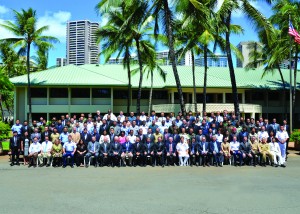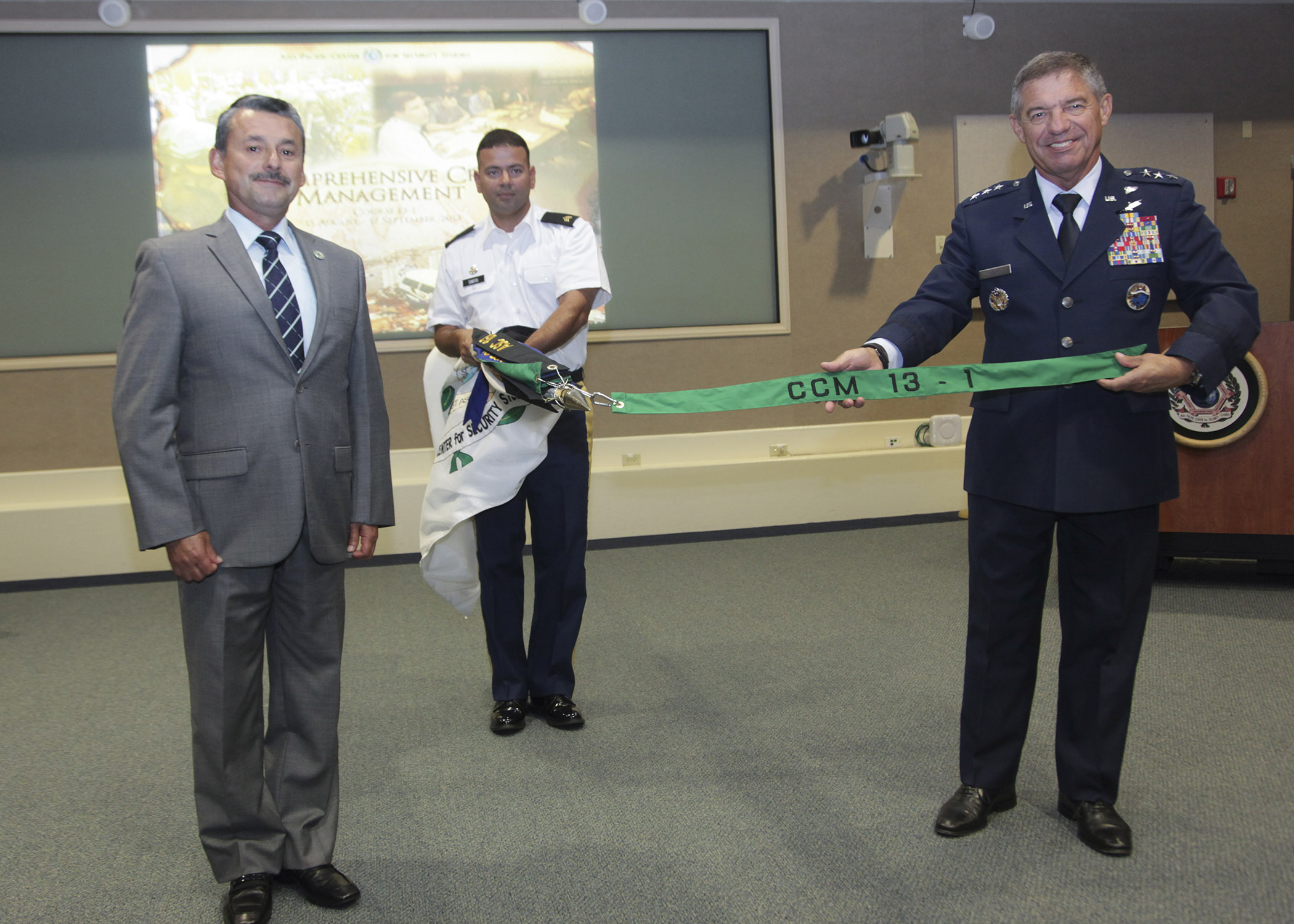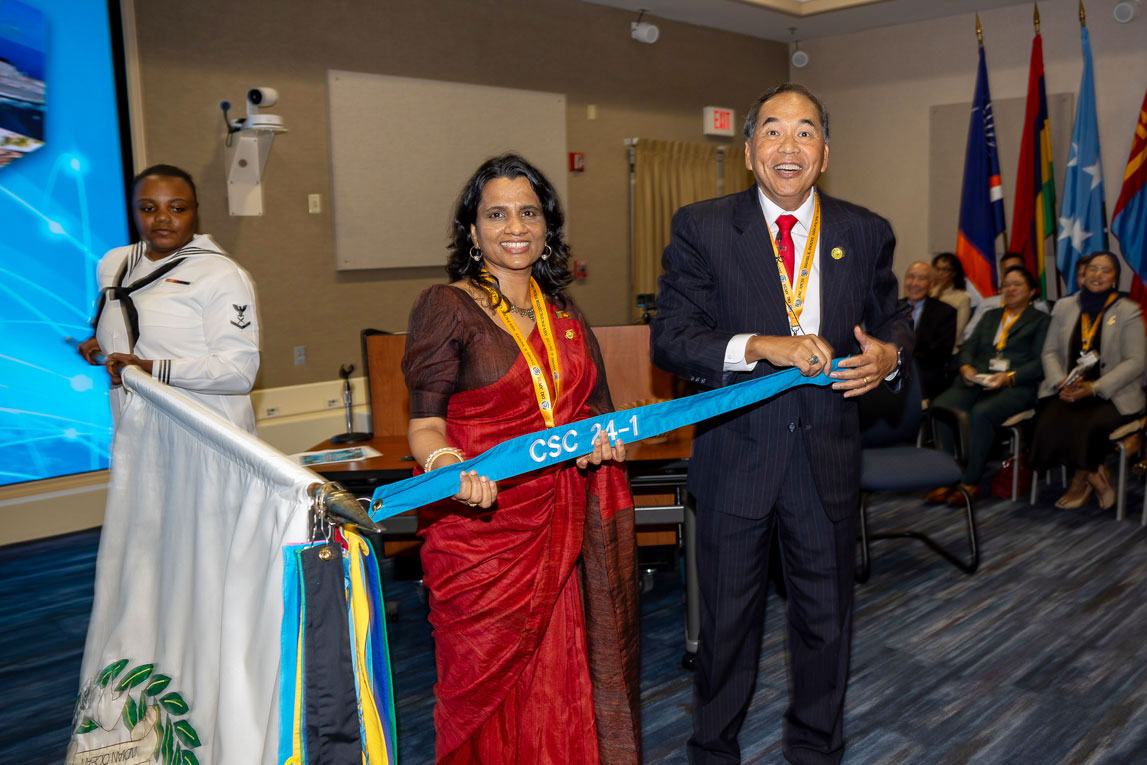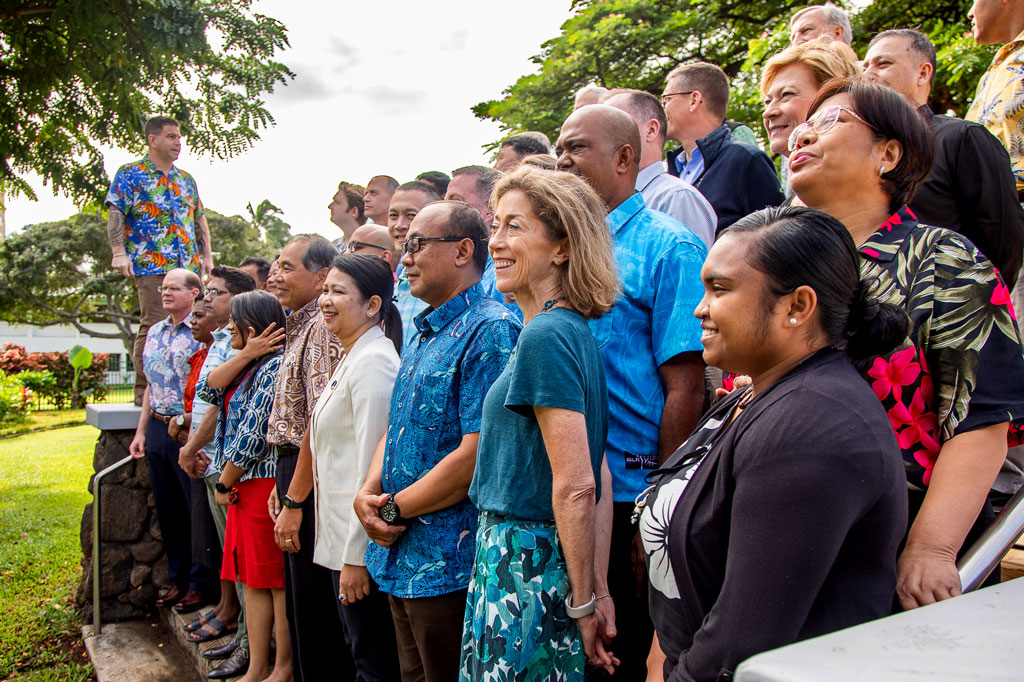 Military and civilian government Fellows from 35 countries and territories including a participant from the United Nations, graduated September 17 from the “Comprehensive Crisis Management Course” at the Asia-Pacific Center for Security Studies.
Military and civilian government Fellows from 35 countries and territories including a participant from the United Nations, graduated September 17 from the “Comprehensive Crisis Management Course” at the Asia-Pacific Center for Security Studies.
Attending the regional security course were 105 participants from: Afghanistan, Australia, Bahamas, Bangladesh, Burma, Cambodia, Chile, China, Colombia, India, Indonesia, Kenya, Kiribati, Laos, Lebanon, Malaysia, Maldives, Marshall Islands, Mauritius, Micronesia, Mongolia, Nepal, Pakistan, Palau, Philippines, Republic of Korea, Samoa, Singapore, Sri Lanka, Thailand, Timor-Leste, Tonga, the United States and Vietnam.
The four-week CCM course is intended to deepen attendees’ abilities to understand and deal with the multi-faceted, interdependent nature of both natural and man-made crises. The course focuses on actions to prevent routine emergencies from deteriorating into crisis, preparing for crises in ways that reduce their near-term impacts, and setting the conditions for cooperation and greater national resilience in future crises. In addition to this conceptual frame work, the CCM course addresses national level considerations in crises including economics, social inclusion, governance and legal issues, strategic communications and climate change. International considerations in humanitarian assistance, including cooperation with the United Nations, are also discussed.
According to Dr. James Campbell, the lead manager of the CCM course, there was an “exceptionally high level of critical thinking and analysis among the participants in this course, which stimulated strategic level discussion on second and third order effects of crisis leadership decisions.”
The Asia-Pacific Center for Security Studies is a Department of Defense academic institute that addresses regional and global security issues. Military and civilian representatives, most from the U.S. and Asia-Pacific nations, participate in a comprehensive program of executive education, professional exchanges and outreach events, both in Hawaii and throughout the Asia-Pacific region. The Center supports the U.S. Pacific Command by developing and sustaining relationships among security practitioners and national security establishments throughout the region. APCSS’ mission is to build capacities and communities of interest by educating, connecting and empowering security practitioners to advance Asia-Pacific security. It is one of the Department of Defense’s five regional security studies centers. Since opening in 1995, APCSS has had representatives from 104 countries and territories, and four international organizations attend courses at the Center for a total of 7,746 alumni.
-End-










Leave A Comment